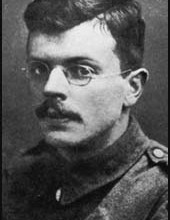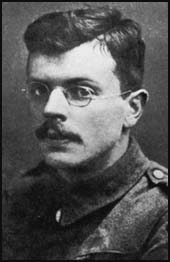
Identification, writing and empathy
Following on from my last post, and having emailed to and fro with a couple of wonderful writers who are either languishing or writhing in the throes of the issue of ‘am I writing like me, or am I writing like somebody else’ (and they know who they are and which of them is which) I had one of those revelatory moments.
I was driving back from Horsham, which is not usually a place to be visited with revelations, although I do get light-bulb moments quite often when I’m driving or running. Anyway, I was watching the road, as there are a couple of nasty places where crashes happen with worrying frequency, and listening to the radio, which is always tuned to Radio 4 when I’m driving and over the forty or so minutes of the journey I was taken through the short and truly tragic life of Ivor Gurney, poet and composer, survivor of the Great War and troubled genius who died in a mental asylum after years of incarceration and treatment that would seem monumentally inhumane to us today.
Anyway, the point was, I knew a little about Ivor from my dilatory PhD research into World War I and by about fifteen minutes into the broadcast I was utterly identifying with him. And that was odd. Odd because I really don’t like that kind of music, and because the experiences with which I was identifying were ones that would send me, as me, running for cover, such as his joy in barrack room life with his army mates (this, remember, is the woman who has a neurotic flap over having to spend a week with fourteen perfectly nice people on an Arvon course and she had her own bedroom, not a bunk in a barracks) and his sentimental love for a VAD nurse (I’m prejudiced a bit against the VAD because my abandoned PhD was about a different branch of volunteer nursing so I’m inclined to be partisan) and general bucolic happiness about his home county, Gloucester, a dismal place that has rained on me, and pretty well through me, every time I’ve been there.
So how was I so completely identifying with Gurney that when I heard he’d written to the American President to complain about being tortured with electricity (about the only thing he wasn’t tortured with was electricity: they injected him with malaria for what probably seemed good reasons to the asylum staff and pulled all his teeth) and begging to be sent back to Gloucester, I was almost in tears at the prospect of the poor creature never seeing the meadows of his home county again?
Well, because I’m a writer, obviously. Because almost any well-presented set of facts will move me, and most other writers, past understanding into a degree of empathy that is often painful and disorienting. And because I’m currently writing about a musician, so any reference to Gurney’s music chimed with an area that I’m immersed in to the point of mania.
So what? Well, a lot of the agonising we do about voice is an attempt to ensure that we’re managing to express what we’ve so easily managed to internalise – that we’re doing justice to the lives that live within us, whether they are completely imaginary like the protagonist in my current novel or wholly factual, like Gurney. And if we can move from thinking about voice as something we have to ‘master’ to thinking about it as an outgrowth of empathy, we are more likely to find the tools we need, and less likely to damage ourselves with doubt and anxiety during the search.


1 Comment
jem
27th February 2009Interesting thoughts. I could spend a long time thinking about your final paragraph. I’m working on my first prolonged piece of autobiographical writing at the moment, and it seems even more important to get my voice right when it’s about me.